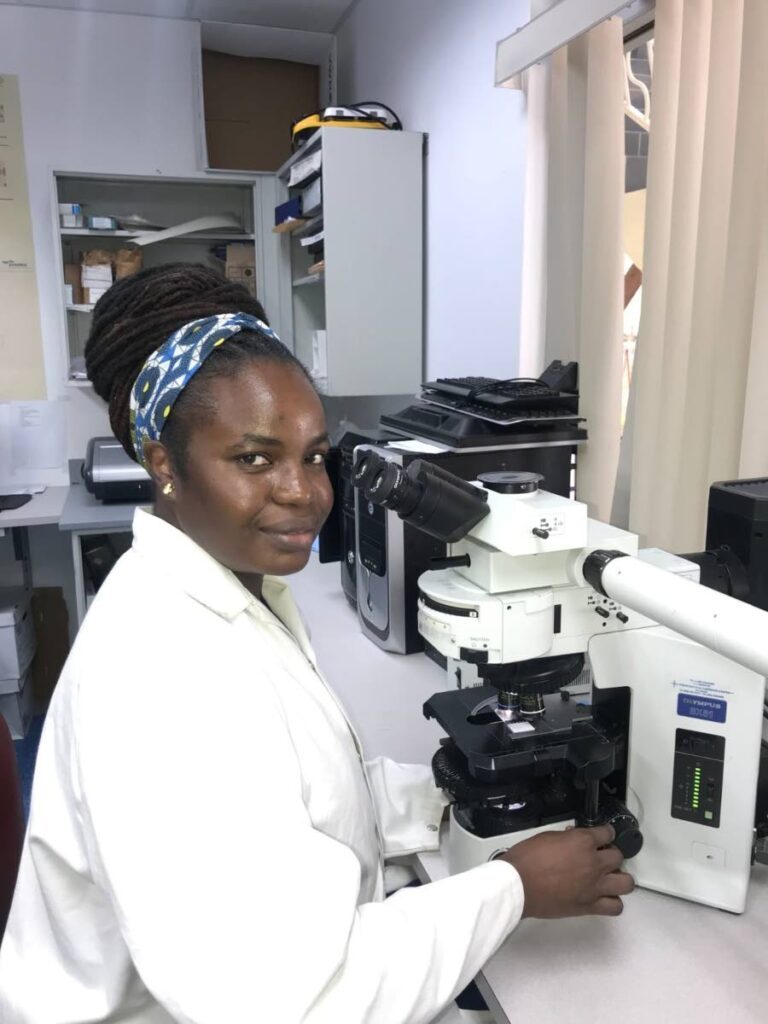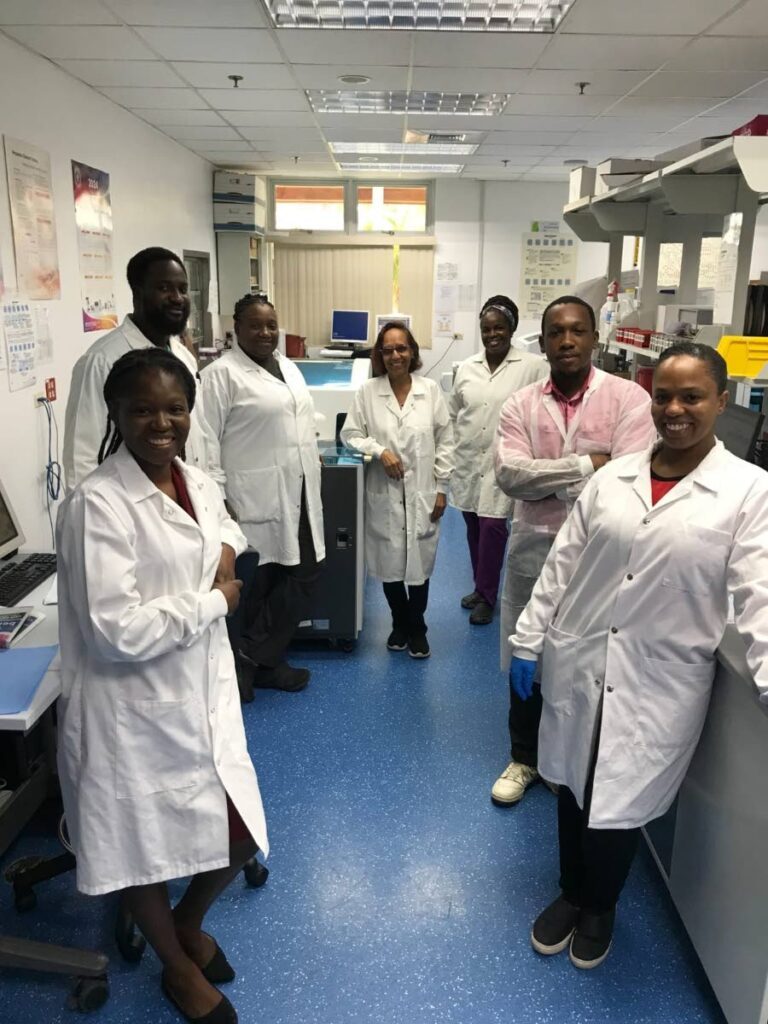TRHA celebrates Medical Lab Professionals Week

Medical Laboratory Professionals Week is an annual celebration of medical laboratory professionals and pathologists who play a vital role in health care and patient advocacy.
In this guest article, the Tobago Regional Health Authority (TRHA) gives an insight into the work done by its medical lab professionals.
In 1975, the American Society for Medical Technology, now called the American Society for Clinical Laboratory Science (ASCLS), embarked on a week-long celebration of these hidden heroes. This was the birth of the annual celebration of Medical Laboratory Professionals Week (MLPW).
In subsequent years, other organisations have served as co-sponsors and campaign supporters for this event, which is celebrated internationally.
The Tobago Regional Health Authority Medical Laboratory department has joined in this year's 49th celebration, observed from April 14-20. Some of the activities planned for this week include
- Blood drive
- Demonstration booths and lectures
- Games night and other social events with laboratory staff
Medical laboratory scientists are entrusted with diverse responsibilities, such as inspecting and analysing blood, body fluids, tissues, and cells. As such, many are specialised in areas of medical microbiology, chemistry, hematology, immunology, transfusion medicine, toxicology, molecular diagnostics, laboratory informatics, research electronics, geology, and environmental science. Some have even become educators in their subfields.
The role of a medical laboratory professional is indispensable across numerous industries, spanning from healthcare to research and offers a vast array of career opportunities. The expansion of healthcare, pharmaceuticals, research, and diagnostics sectors only increases the demand for laboratory technicians.
Junior technicians can progress to senior positions, such as lab supervisors or managers, through accumulated experience and further qualifications. Others who are so qualified have the ability to operate in various environments, including public healthcare, in-vitro diagnostics industry, research, and educational institutions.
Laboratory professionals conduct tests on blood, urine, body fluids and tissues, analyse the findings, and contribute to understanding the patient's health status. By integrating these results with clinical history, physicians can offer tailored and timely care to patients.
Currently, at the TRHA, our most effective ways of promoting our services are through a combination of social media via the TRHA’s website, its Facebook page and via health promotions/health fairs. These two channels help to promote and showcase the knowledge, qualifications and exposure required to effectively contribute not only in the laboratory but to other departments in the medical field.
The TRHA’s laboratory offers a range of services from biochemistry analyses inclusive of renal function, liver function, cardiac enzyme, iron or anaemia studies to immunology: thyroid function, hormones studies for male and females, cancer markers including PSApsa, CAca 15.3, CAca 19.9 to haematology: CBCcbc, ESResr, blood film production and review to coagulation: prothrombin time and partial prothrombin time, dimer to immunohematology: blood group, cross matches, screening for clinically significant antibodies, microbiology: urinalysis, urine culture, wound and tissue fluid culture, fecal occult blood, antibiotic sensitivity identification, histology: pap smear (limited availability), tissue processing and analysis.

Our laboratory produces over 60,000 test results monthly. With biochemistry section having the heaviest workload and broadest range of tests consisting of approximately 65 per cent of the total output. microbiology department for example runs an average of 600 to 700 test monthly.
Biochemistry, however, would be in the thousands owing to the number of individual samples.
The efficiency of the laboratory in the context of the island can be described as nothing less than exceptional in that our turnaround time (TAT) for health centres are generally one working day (less than five to six hours) of receiving a sample to dispatching results. With these auxiliary sites they receive general chemistry, immunology and haematology reports the next day via couriers dispatched to the health centres.
Microbiology, however, secondary of the nature of the tests TAT is two to three days if no organisms are identified and five to six days if a clinically significant organism is present. In the interim, however, preliminary verbal reports are issued for urgent cases like a CSF or blood culture sample.
Within the hospital, TAT for the accident and emergency department ranges from one to two hours.
Accomplishments of the TRHA’s laboratory during the duration of its existence include the attainment of back-up analysers for the three 24-hour departments of biochemistry, haematology/coagulation and blood bank. We can boast of having well trained staff within the six main disciplines of the laboratory namely phlebotomy, biochemistry, haematology, blood bank, microbiology and histology.
Continuous quality improvement, however, is key to our success. With focus being on personnel, often times efficient staffing is ignored by organisations perhaps due to committed staff going above and beyond to ensure tests are completed to aid in best patient outcomes.
This was demonstrated throughout the covid19 pandemic where workload was significantly increased more than tenfold.Though workload continuously increases, yet, in the circumstances, staffing is not proportionately increased.
Medical laboratory personnel continue to be committed to the advancement of the field and so are ever deserving of investments. Investment in hiring and retaining high calibre of medical laboratory professional service providers, investment in training and development, facility and working conditions upgrades and investing into commensurate remuneration with a goal of further enhancing the quality and efficiency of our services is our primary objective at this time.
In a nutshell, delivery of diagnostic health care aids in the overall treatment and care of patients. Screening can help people improve on their level of fitness and overall health. With diagnosis the laboratory results can be the starting point of identification of serious maladies such as cancer or gastrointestinal abnormalities.
And when combined with a thorough physical exam and medical imaging tools, this aids in the best outcome for patient treatment. All disciplines of health point toward giving the patient the best outcome possible with the least harm or no harm to the patient. Laboratory diagnosis is one of the least invasive forms of diagnosing issues and a critical starting point in managing individual health.
As we celebrate MLPW 2024, the spotlight shines brightly on these unsung heroes – medical laboratory professionals – recognising their invaluable contributions to the healthcare landscape. With the theme for this year being, "The lab is everything, the forefront of saving lives," the focus is not only on acknowledging the vital role of individuals within all laboratories but also the importance of the laboratory. Across the island of Tobago there are two public laboratories located at Scarborough General Hospital and Roxborough Hospital.
The TRHA wishes to applaud the steadfast dedication and expertise of laboratory professionals, with a reaffirmation of their commitment to ensuring that patients receive the highest standards of diagnostic care, today, tomorrow and in the future.

Comments
"TRHA celebrates Medical Lab Professionals Week"